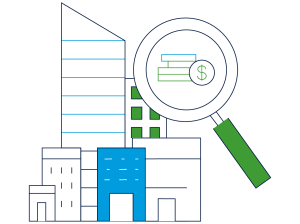This article answers the following questions:
- How is the external assessment of internal audit carried out?
- What do IIA standards say about the external assessment of internal audit?
Internal audit is an independent and objective activity aimed at assessing and perfecting an organisation's operational activities. Through systematic and structured analysis of risk management processes, internal control systems, and organisational governance, it contributes to their improvement and development. Internal audit thus supports the organisation in achieving its goals, ensuring the effectiveness of the processes in place and fulfilling an advisory role. Therefore, it is essential to make sure it is performed with due diligence. An independent, external assessment can be invaluable in this regard.
When conducting an audit, it is important to remember that it must adhere to international standards
Internal auditing is a foundation of trust as it gives the management, owners, and stakeholders of the audited business an assurance as to the proper functioning of processes and systems and the accuracy of data. Conducting it allows decision-makers not only to approach risks differently but also to act more effectively and make more accurate strategic decisions. To avoid wasting the potential of this procedure and missing information that is key for effective risk management, it is crucial that internal audits are systematically assessed by competent external bodies.
The obligation to conduct an external assessment of internal audit results from the International Standards for the Professional Practice of Internal Auditing (IIA Standards), which were developed by the Institute of Internal Auditors – IIA.
IIA standards set out the principles of internal auditing and clearly state that an external assessment of internal audit activities should be conducted at least once every five years. This procedure must be performed by a qualified independent assessor or an assessment team from outside the organisation.
Methods of conducting an external assessment of internal audit according to IIA standards:
- Full external assessment – conducted by an appropriately qualified team of assessors, independent and unrelated to the organisation being audited.
- Self-assessment with independent validation (external approval) – depending on the size of the audit unit being assessed (and the scope of this assessment), carried out by a larger team or an independent, qualified assessor.
Learn more about our services
Benefits of external assessment of internal audit
An external assessment of internal audit allows businesses not only to meet the requirements imposed on them but, above all, to increase the effectiveness of the procedures in place. Assistance from a professional audit firm primarily includes:
- independent verification enabling an objective assessment of the functioning of internal audit in the light of the International Standards for the Professional Practice of Internal Auditing (by IIA);
- identification of possible loopholes and areas requiring streamlining, translating into the development of internal audit in the organisation;
- assessment of internal audit in terms of competencies and strategies enabling effective response to future challenges and the needs of the organisation;
- assessment of the degree of alignment of internal audit activities with the organisation’s strategy, objectives, risks and plans;
- strengthening the rank and importance of internal audit in the organisation;
- strengthening stakeholders’ confidence in the credibility and effectiveness of internal audit as to its meeting of their needs and expectations;
- helping to validate and bolster internal audit activities and increasing the effectiveness, efficiency and proper implementation of good practices;
- the opportunity to receive recommendations aimed at increasing the effectiveness of internal audit in the future.
Our experienced RSM Poland audit team brings in-depth expertise gained through working with companies from various sectors, providing an independent and objective assessment of the internal audit function and helping auditees gain a new perspective on the operation of the entire organisation.
We invite you to cooperate!








